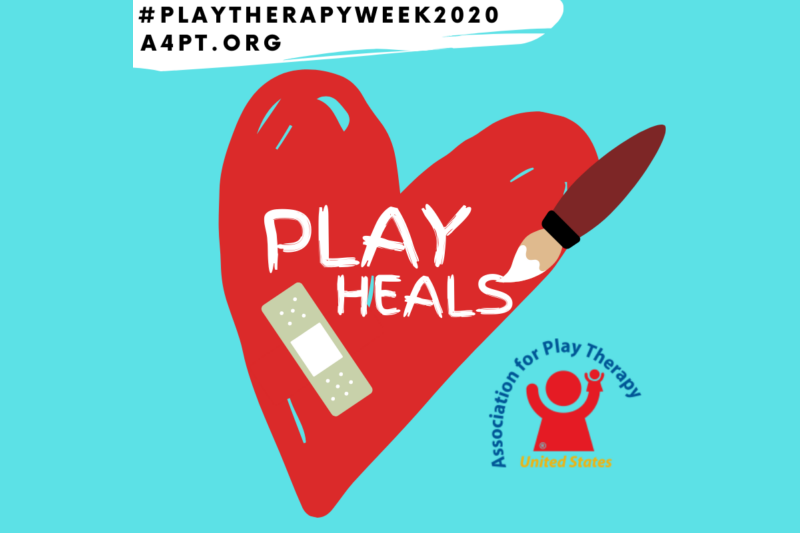Play therapy heals children by helping them work through and solve their own problems, in the way that they know how. Children often times learn how to engage with others, adapt personality traits and behaviors, problem-solve, and create new ideas, all through play. Children can create a whole world for themselves through play, where they feel safe to explore themselves and their surroundings. Similar to talk therapy, children have the ability to come into the play (therapy) room and express themselves in whatever way they feel comfortable.
The Association for Play Therapy defines play therapy as “the systematic use of a theoretical model to establish an interpersonal process wherein trained play therapists use the therapeutic powers of play to help clients prevent or resolve psychosocial difficulties and achieve optimal growth and development” (“Why Play Therapy”, n.d.). Play therapists use similar techniques as other therapists, while utilizing the language of play with their clients. Play therapy is often used with children, but can be adapted to be used with all age groups
Play therapy is unique in that it is used to help children process tough emotions and behaviors, and it allows the therapist to really meet the child where they are, no matter what their age is. Play therapy can really be used for any age group of children, and it can be modified to match the child’s developmental level. As previously stated, play is often times used with children, but it can also be used with older adolescents and adults to tap into parts of the brain that day to day activities may not open up. Many play therapy activities allow for both sides of the brain to be engaged at the same time, furthering the processing and firing of the brain’s neural connections. As humans, play is really the foundational building blocks that formed our brain!
What are the benefits of play therapy?
Play therapy is especially beneficial for younger children who do not yet have the skills to communicate their emotions and thoughts through talk therapy. Play allows for the child to express themselves through their play, in a safe and non-judgemental setting. Play is also a necessary activity for children to process their emotions, develop cognitively, and help grow their motor functions. Play therapy has been found to be beneficial for children working through struggles such as: anxiety disorders, obsessive-compulsive disorders, depression, attention deficit hyperactivity, autism spectrum, oppositional defiant and conduct disorders, anger management, crisis and trauma, grief and loss, divorce and family dissolution, academic and social developmental, and physical and learning disabilities (Lilly, O’Connor, & Krull, n.d.). Society often times tells children to grow up quickly and learn as fast as possible. However, this is happening without taking the time to get to know how the child’s brain really works, and at what stage that child is at both cognitively and emotionally. Play therapy slows down that process, and creates a wider scope of how we see the child. Play therapy creates a space to better understand how the child functions at all levels, and fills in the missing pieces to their story. Therapist are then able to build up the child’s support system of parents, siblings, teachers, and whoever else might be beneficial to best help the child. Play is really beneficial to anyone, and play therapy is especially beneficial for expression and learning about oneself!
For further questions and information about play therapy, please visit the Association for Play Therapy website for various articles and resources at https://www.a4pt.org.
You can contact Crossroads Family Counseling Center as well. www.crossroadsfamilycouselingcenter.com. We have a monthly newsletter you can sign up for to get more information on topics related to play with children and adolescents, a Pinterest page with Play Therapy activities and our Facebook and Instagram pages sharing about Play therapy books and resources.
Written by: Sheri Mitschelen, LCSW, RPT-S and Kasey Reichard, MS, Resident in Marriage and Family both specialize in working with children, adolescents, parents, adults and families through play therapy.
